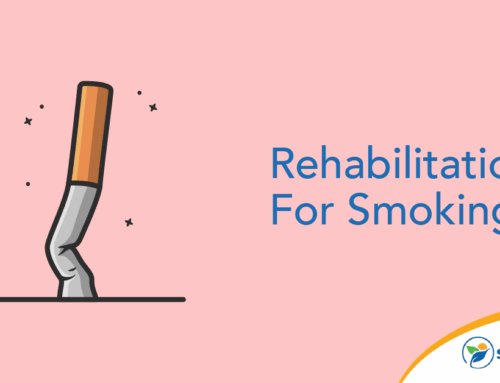You may have kept a hidden diary as a teen but stopped writing down your inner thoughts after reaching adulthood. Putting pen to paper to make sense of your emotions is a beneficial practice regardless of age. Whether you have a diagnosed mental health condition or want to focus more on your well-being, learning how to journal can help you better cope with life’s challenges. Here’s our guide on how to get started with your first entry.
Why You Should Start a Daily Journaling Practice
Keeping a journal for mental health is a great way to self-reflect on your emotions. While research on journaling is limited, studies suggest it can help manage symptoms of mental health conditions such as anxiety, post-traumatic stress disorder and depression.
What makes journaling potent is how simple and accessible it is to incorporate into your daily life. Like with most self-improvement actions, staying consistent in your practice is key. It shouldn’t take long before you start feeling some of the benefits of journaling, such as:
- Improved problem-solving skills. Writing about challenges can help you gain perspective and brainstorm solutions.
- Lowered stress levels. Journaling allows you to unload your thoughts and emotions and gives you a sense of relief and clarity.
- Increased self-awareness. By writing down your thoughts, you gain better insight into what you’re feeling and why.
- Improved communication skills. As you articulate your thoughts and feelings on paper, you become better equipped to express yourself at work and in social situations.
- Strengthened resilience. Reflecting on past challenges and how you overcame them reinforces your inner strength.
How to Journal
Journaling provides a healthy outlet to express your emotions and recognize thought patterns. While there’s no right or wrong way to put down your thoughts, here are some tips on how to start journaling for mental health:
- Pick your tool. Select tools that feel comfortable to you, whether that’s writing in a traditional notepad or a digital format. You can buy paper diaries that come with writing prompts or download a free journaling app.
- Create a routine. Choose a time of day that works best for you, whether it’s first thing in the morning, during your lunch break or before bed. Start with a manageable timeframe, such as 5–10 minutes for each session, and slowly increase as you get more comfortable with the practice.
- Choose a comfortable space. Find a quiet area in your house where you can focus without distractions. This could be your dining room table, kitchen counter or bedroom.
- Explore a range of formats. Try various writing formats such as gratitude lists, expressive writing, stream-of-consciousness or reflective journaling. Find what resonates and allows you to express yourself most effectively.
- Write freely. Allow your thoughts to flow naturally without judgment or self-editing. Be honest and authentic with yourself, and write about whatever comes to mind.
- Stay consistent. Aim to write regularly, whether it’s daily, weekly or even monthly. Like any habit, journaling takes time to develop. Be patient with yourself and commit to making it a regular part of your routine.
Writing Prompts to Help Get You Started
Starting a new habit can feel intimidating, and journaling can be especially difficult when you’re unsure what to write about. Here are some helpful writing prompts you can incorporate into your daily journaling practice:
- Gratitude list. Write down three things you’re grateful for today. Reflect on why each brings you joy and how they contribute to your life in meaningful ways.
- Emotional check-in. Take a moment to tune in with your emotions. Describe how you’re physically and mentally feeling right now. Allow yourself to explore your emotions without judgment or censorship.
- Daily reflection. Take a moment to reflect on your day. What were the highlights? What challenges did you face? How did you feel throughout the day?
- Self-compassion exercise. Write a letter to yourself to acknowledge your strengths, accomplishments and resilience. Offer yourself words of kindness and encouragement as you would a dear friend.
- Stream-of-consciousness writing. Set a timer for 5 minutes and write continuously, letting your thoughts flow without censorship. Don’t worry about grammar or punctuation.
- Reflective journaling. Choose a significant event or experience from your past and reflect on its impact on your life. Explore the lessons you’ve learned, the growth you’ve experienced and how it’s shaped your perspective.
- Daily affirmations. Write down three positive affirmations to boost your self-esteem and confidence. Repeat these affirmations to yourself throughout the day as a source of encouragement and positivity.
How to Keep Track of Your Progress
Tracking your progress while journaling can provide valuable insights into your mental health journey and help you stay motivated and accountable. One obvious way to keep track of your progress is by dating each entry. This allows you to keep an eye on the frequency of your journaling sessions and observe any correlations between specific dates and your mood or experiences.
Identify specific goals or intentions for your journaling practice, such as managing stress, improving self-awareness or cultivating gratitude. You can then revisit these goals and note any progress or challenges you encounter along the way. Reviewing past journal entries is a good way to reflect on your progress and growth. It will help you notice any changes in mindset, behavior or outlook on life and provide an opportunity to celebrate your achievements, no matter how small.
Take note of your mood and emotions in each journal entry. You can use a simple scale (e.g., from 1 to 10) to rate your mood or describe your emotions using words or phrases. Over time, tracking your mood can help you identify patterns and triggers for certain emotions.
It’s a good idea to monitor your progress, but you should be mindful about revisiting journal entries where you discuss painful life experiences. While writing about adverse moments can be cathartic, reading how you felt in the moment could take you back into that negative state of mind.
While journaling can be incorporated as part of therapy, it’s not a replacement for it. If you need additional support with your mental health, the compassionate counselors at Sunlight Recovery are available 24-7 to take your call. Contact us now and start your journey to recovery.







